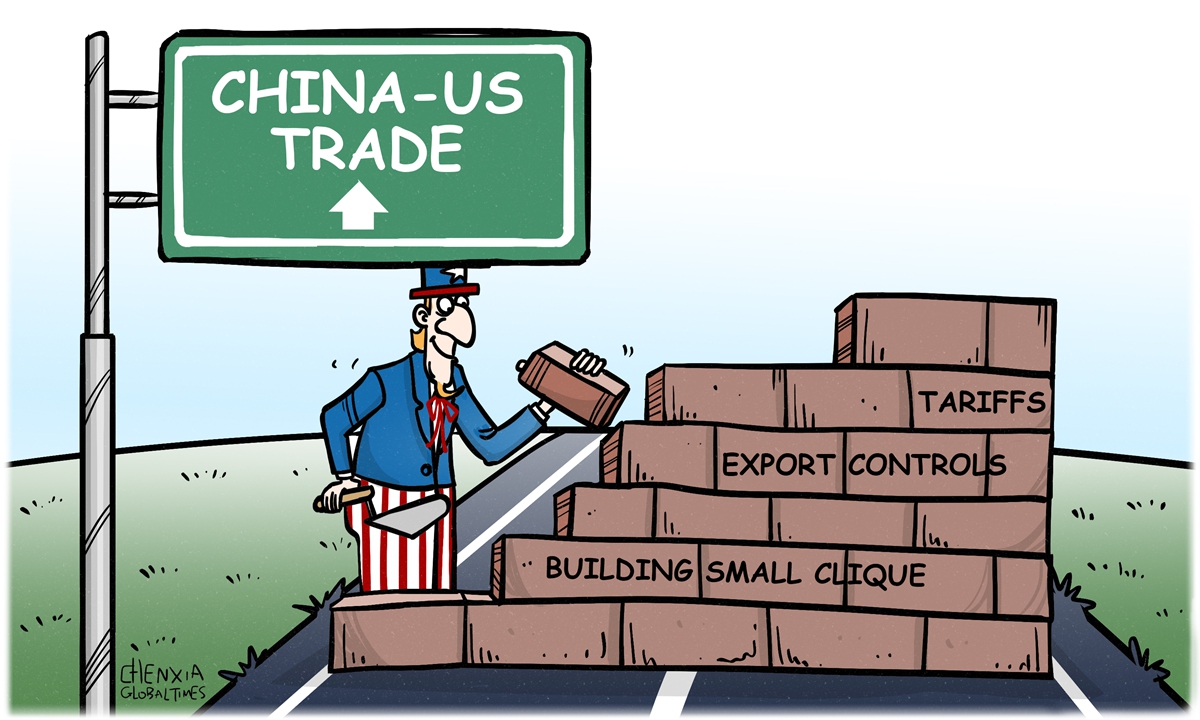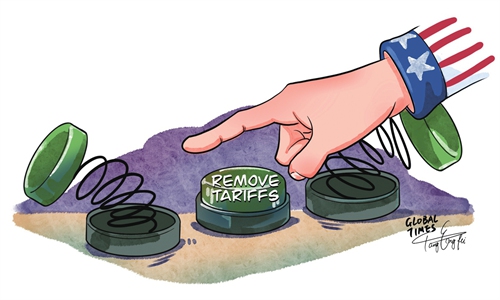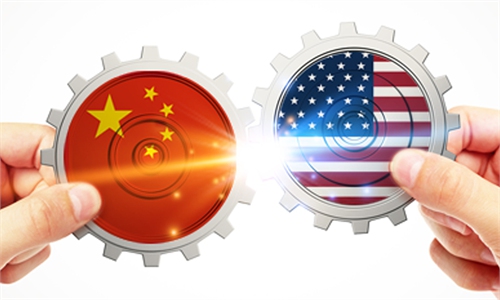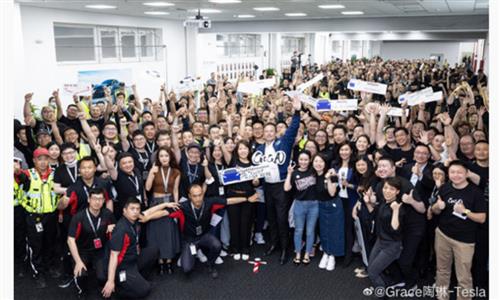
Illustration: Chen Xia/Global Times
There have been a series of signs that the momentum of China-US business exchanges is on the rise recently. The business communities on both sides showed a strong willingness to step up exchanges after top commerce officials from the world's two largest economies held "candid" discussions on the trade relationship last week.
The China Chamber of International Commerce (CCOIC) on Wednesday announced plans to organize a delegation of Chinese entrepreneurs to visit the US in July. The delegation is scheduled to investigate the business environment and trade and investment opportunities in Washington DC, New Jersey, North Carolina and South Carolina from July 24 to 30, the trade promotion agency said.
Meanwhile, some top US CEOs, including Tesla CEO Elon Musk, JPMorgan Chase CEO Jamie Dimon and Starbucks CEO Laxman Narasimhan, have been visiting China recently. Musk said Tesla objects to "decoupling" and is willing to further expand its business in China. Dimon said JPMorgan is committed to China business despite growing tensions between the US and China.
American entrepreneurs' strong confidence in the Chinese market and economy, combined with their opposition to "decoupling" shows that the dividends and attractiveness of the Chinese market remain strong. Yet, we must be soberly aware that the three major obstacles that the US unilaterally imposed on bilateral economic and trade - Trump-era tariffs, export controls, the building of a small economic and trade clique against China - are still in the way of restoring a stable and healthy bilateral economic and trade relationship.
China's development is an opportunity for the world, not risk or threat. A healthy, stable, and constructive China-US economic relationship is beneficial to not only the two countries, but also the whole world. Obviously, both Chinese and American entrepreneurs understand this truth. However, some paranoid American politicians have yet understood, or even cared about the productive interactions between the Chinese and American business communities. They instead choose to turn a deaf ear to the voice of the business leaders, ignoring China's goodwill and sincerity in welcoming American companies, and adhering to their containment strategy against China.
The US on Tuesday imposed sanctions on 13 China-based entities and individuals, under the pretext of enabling production of counterfeit fentanyl-laced pills, as the Biden administration seeks to stem imports of the deadly drug. The US claimed that these Chinese entities and individuals are involved in the sale of pill press machines, die molds, and other equipment to the US and Mexico, but "it is widely known that pill press machines and die molds are common commodities with legitimate uses and are widely used in normal industrial production," a Chinese Embassy said.
It is a typical unilateral sanction and a form of economic coercion which seriously damages the legitimate rights and interests of Chinese entities and affects counter-narcotics cooperation between the two countries.
In recent years, almost every time there are positive signs and indications of easing trade tensions between China and the US, they are quickly extinguished by Washington's unilateral sanction or the unfriendly behavior of the US. Whether China-US trade can break out of the vicious cycle largely depends on whether paranoid American politicians can develop a correct understanding of China's economy, and can recognize the opportunities the Chinese economy offers.
Anti-China forces do not want to see a prospering China. They massively play up the "China threat theory" and the "China collapse theory," creating rumors to attack and vilify the Chinese economy. In recent years, the China-US relations have encountered difficulties, and the root cause lies entirely in Washington's zero-sum mentality and its erroneous China policy.
The global community expects China and the US to keep the bilateral ties stable and advance economic cooperation. The voice of the Chinese and American business communities should be heard by politicians in Washington. The US needs to take practical action, working with China to jointly bring bilateral relations back to the right track of sound and steady development.
The author is a reporter with the Global Times. bizopinion@globaltimes.com.cn



